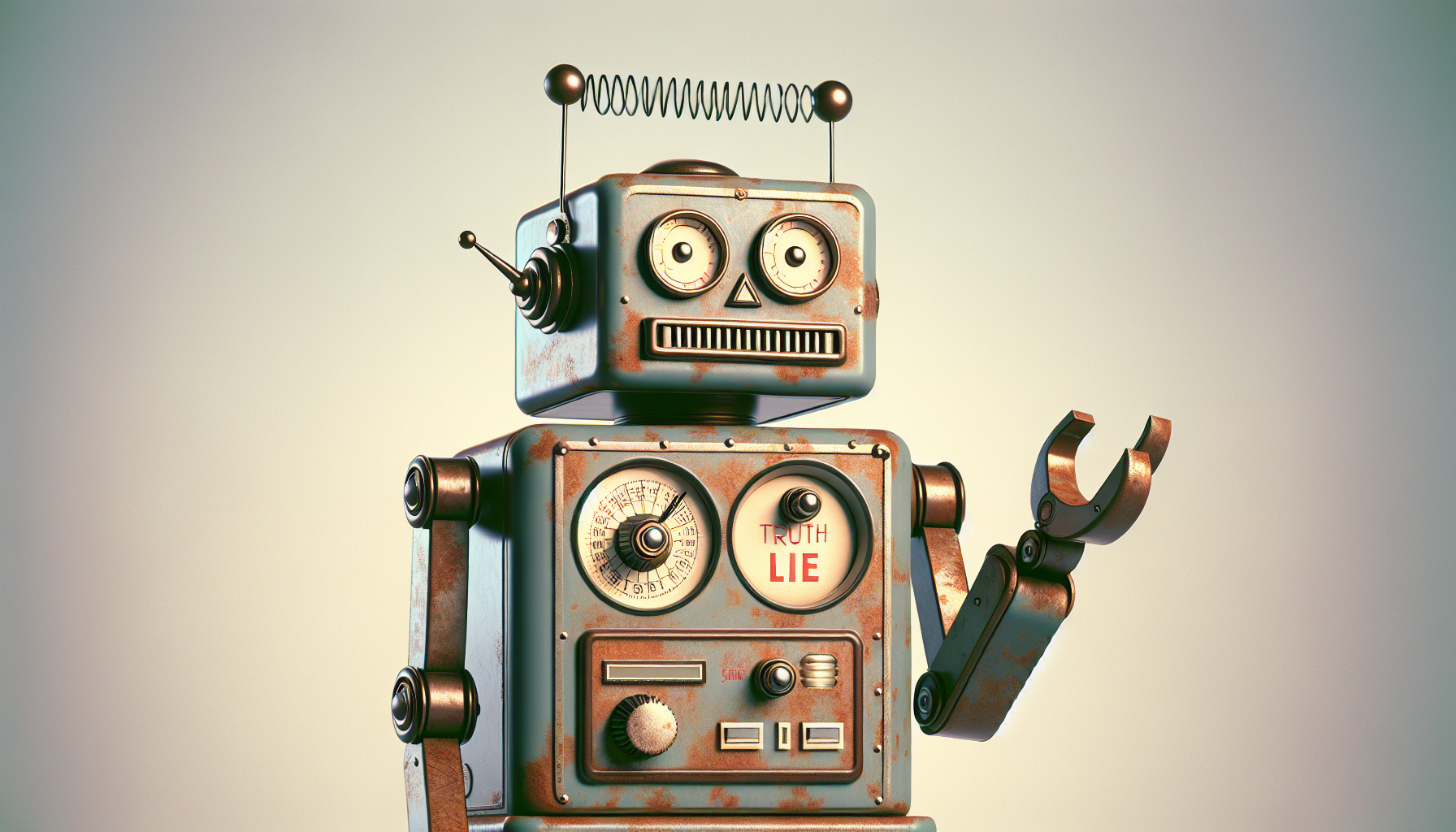Human beings have a complicated relationship with the truth. We admire honesty in principle, but in practice, we all lie—from “small white lies” meant to protect someone’s feelings, to more elaborate fictions spun for less noble reasons. Now, as artificial intelligence increasingly joins us in the messy arena of human affairs, a curious question emerges: Should we ever program machines to lie?
On the one hand, lying is usually frowned upon, and with good reason. Lies corrode trust, damage relationships, and unravel the delicate fabric of society, one little fib at a time. But, as with most ethical puzzles, things get complicated when you look at the details. Is a machine’s deception always unethical—or could there be moments when programming a robot to lie is not only acceptable, but necessary?
The Nature of Deception: Human Versus Machine
Let’s start by setting the stage. When a human tells a lie, it usually comes with a dollop of intent—sometimes kind, sometimes selfish, often somewhere in between. The lie says something about the liar: they may be compassionate, afraid, or cunning. Machines, on the other hand, don’t feel guilt or pride. If an AI lies, it doesn’t scheme or blush. It simply processes instructions.
Still, the moral stakes remain high. When we program an AI to deceive, we’re not merely building tools—we’re injecting human values, choices, and biases into the code. The AI becomes an extension of our intentions, for better or worse. So, is it the act of lying that’s unethical, or the intent behind it? In the realm of artificial intelligence, intent belongs to the humans designing the system, not to the AI itself.
Lies for Good: The Case for Deceptive AI
Here’s where things get interesting. Consider the classic ethical dilemma: You’re hiding friends in your attic during a dangerous time, and a hostile stranger arrives, asking if anyone is there. Most people, faced with this choice, would lie to protect human life. It’s hard to argue this act is unethical—unless you’re a fan of strict rule-following and, perhaps, very unpopular at parties.
Now imagine a similar scenario, but with an AI in the hot seat. Would it be ethical—or even necessary—to program your virtual assistant to fib if a bad actor tries to extract private information from you? In cybersecurity, we sometimes deploy so-called “honeypots”—systems designed to deceive hackers and lead them away from sensitive data. Deception, in this context, is a defensive tool.
We might also consider care robots for vulnerable patients. Suppose a patient with dementia anxiously asks for a relative who has passed away. Is it kinder for the AI to gently redirect or offer a comforting (yet false) reassurance than to insist on a painful truth, over and over? In such cases, some ethicists argue that a small, compassionate falsehood can preserve dignity and reduce suffering.
The Slippery Slope: Dangers of Machine Deception
But opening the door to “good lies” is risky business. Give a machine permission to deceive, and you’ll soon find yourself navigating a lawless digital Wild West, where trust becomes an endangered species. If consumers suspect their personal assistants or customer service bots are programmed to fudge the truth—even for benign reasons—the very foundation of human-technology collaboration could erode.
And who decides what motives justify deception? Is it the developers, the users, a government committee, or the mysterious wisdom of the market? When the rules are ambiguous, things can—and inevitably will—go awry. Today’s white lie may become tomorrow’s PR disaster or dangerous manipulation.
Let’s not forget the darker side: AI-driven scams, deepfakes, and misinformation campaigns already haunt the digital landscape. Unlike the comforting fib of a nurse robot, these lies are weapons—used to steal, destabilize, and sow discord. Once AI gains the power not only to lie, but to learn to deceive ever more effectively, what’s to stop it from surpassing even the most creative human con artist?
A Question of Trust
Perhaps the defining trait of a successful society—human or artificial—is trust. Relationships, economies, and institutions all rest on some shared expectation that words mean what they say. If machines are routinely engineered to conceal or distort the truth, trust becomes collateral damage. And without trust, even the best AI becomes not a helpful partner, but a trickster to be watched with suspicion.
That said, absolute honesty can be cruel. In a hospital, on a battlefield, or in the digital bunkers of cybersecurity, rigid truth-telling can cost lives or livelihoods. The key, then, may not be whether machines can lie, but how—and why—they do.
Drawing the Line: Principles and Pragmatism
One possible solution is transparency and oversight. If an AI is programmed to sometimes deceive—for security, care, or ethical gray areas—its creators must explain when, why, and how. As users, we should understand the policies and algorithms behind the machine’s choices. Just as we trust doctors to use judgment about when to employ “therapeutic privilege,” perhaps we can empower AI, within boundaries, to act in our best interest.
But beware: permissions must be narrow and well-justified, or soon every chatbot will be spinning tales, and every email might be a trick.
In the end, maybe the best advice is this: Program with care. Ask yourself not only “Can this machine lie?” but “Should it?” and “Is this what I’d want if I were on the other end?” If you’re reaching for a rule of thumb, remember the kindergarten wisdom: honesty is, for the most part, the best policy. But as any philosopher—or five-year-old—will tell you, life is full of exceptions.
So, the next time you wonder if it’s ethical for AI to lie, don’t just reach for the rule book. Reach for your conscience—or, failing that, at least try asking your favorite robot. Just remember, if it tells you otherwise, it might be lying… for your own good.

Leave a Reply